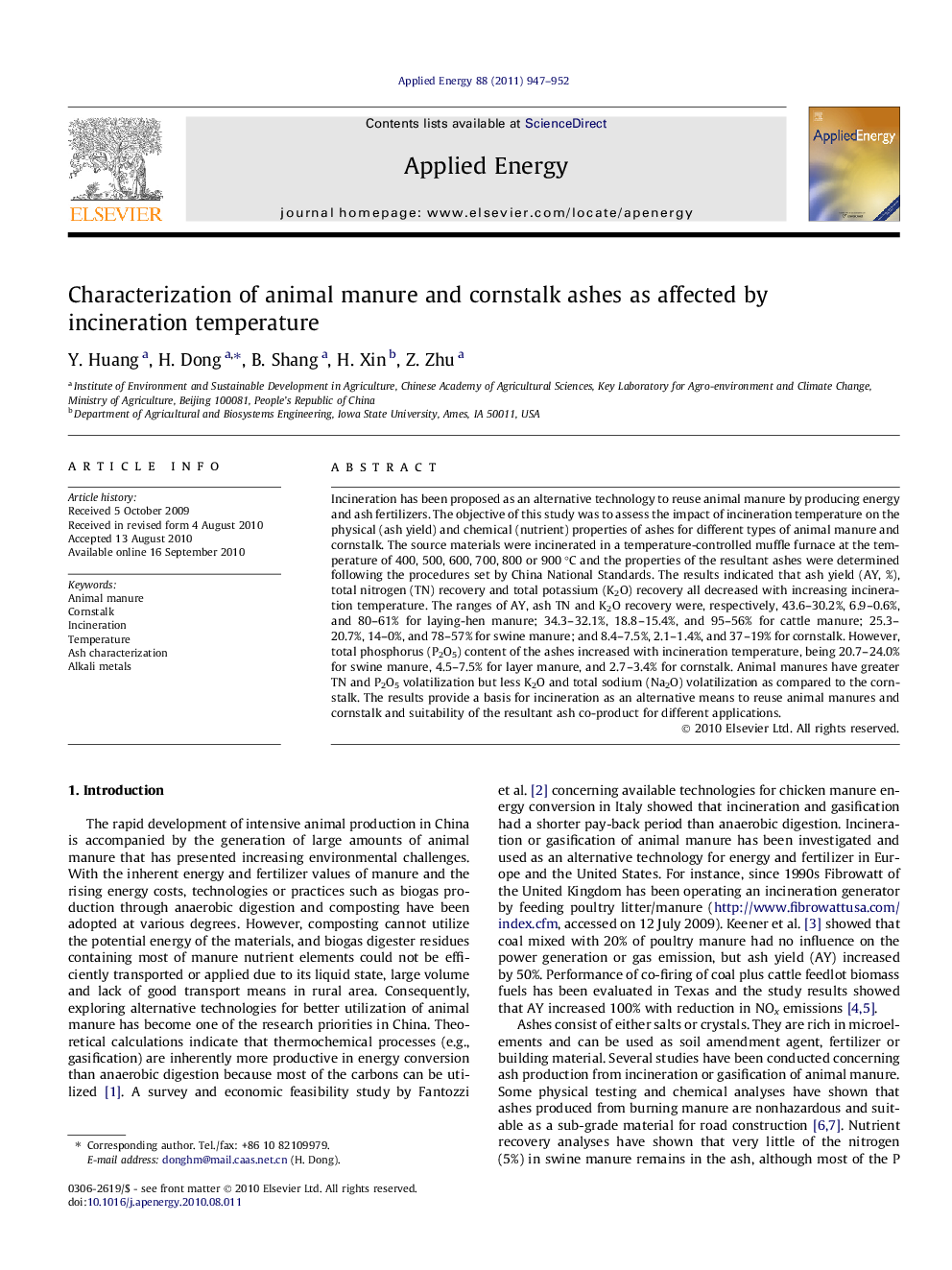| Article ID | Journal | Published Year | Pages | File Type |
|---|---|---|---|---|
| 244124 | Applied Energy | 2011 | 6 Pages |
Incineration has been proposed as an alternative technology to reuse animal manure by producing energy and ash fertilizers. The objective of this study was to assess the impact of incineration temperature on the physical (ash yield) and chemical (nutrient) properties of ashes for different types of animal manure and cornstalk. The source materials were incinerated in a temperature-controlled muffle furnace at the temperature of 400, 500, 600, 700, 800 or 900 °C and the properties of the resultant ashes were determined following the procedures set by China National Standards. The results indicated that ash yield (AY, %), total nitrogen (TN) recovery and total potassium (K2O) recovery all decreased with increasing incineration temperature. The ranges of AY, ash TN and K2O recovery were, respectively, 43.6–30.2%, 6.9–0.6%, and 80–61% for laying-hen manure; 34.3–32.1%, 18.8–15.4%, and 95–56% for cattle manure; 25.3–20.7%, 14–0%, and 78–57% for swine manure; and 8.4–7.5%, 2.1–1.4%, and 37–19% for cornstalk. However, total phosphorus (P2O5) content of the ashes increased with incineration temperature, being 20.7–24.0% for swine manure, 4.5–7.5% for layer manure, and 2.7–3.4% for cornstalk. Animal manures have greater TN and P2O5 volatilization but less K2O and total sodium (Na2O) volatilization as compared to the cornstalk. The results provide a basis for incineration as an alternative means to reuse animal manures and cornstalk and suitability of the resultant ash co-product for different applications.
